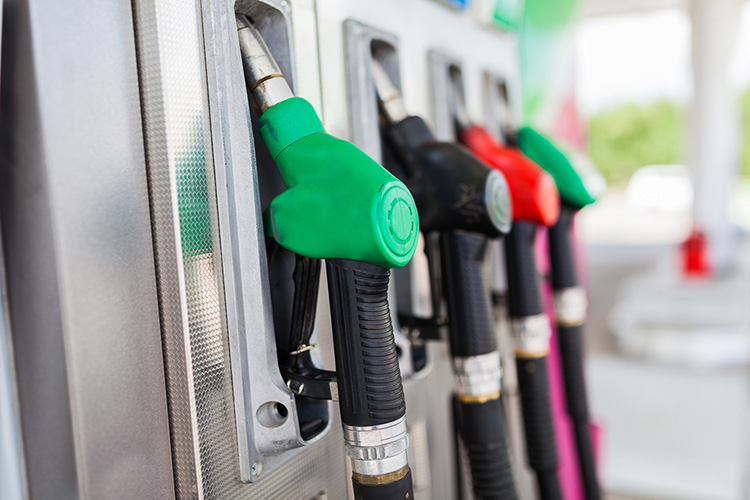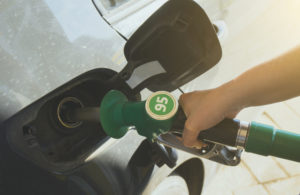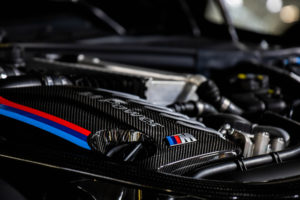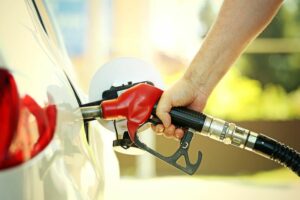Is Premium Fuel Worth It?
Written by: Simon Pavey, Last updated:4th March 2025

It’s a question you may ask yourself while filling your car and staring at the pumps. Is that more expensive premium petrol on the nozzle next to the standard fuel worth the extra cost? And if so, what’s the best premium fuel in the UK?
Premium fuel vs standard fuel
Read on to understand the differences and determine whether opting for more expensive premium petrol and diesel is worth it for your fleet.
The different types of fuel
Most filling stations will offer two types of petrol for your vehicle – standard unleaded and super unleaded. The ‘unleaded’ description remains, even though no leaded fuel has been sold in the UK for years.
What is premium unleaded fuel and super unleaded fuel
Confusingly, standard unleaded is sometimes referred to as ‘premium unleaded’, even though it’s the most essential fuel type. The more expensive options are labelled as ‘super unleaded’.
Read this RAC guide on ‘What is the best fuel for my car? The definitive guide to different fuel types’ for further information about different fuel types.
Branded premium fuel
You can expect this at most filling stations, such as supermarkets. However, many branded stations, such as those run by BP or Shell, also offer their premium fuel formula.
Find out if the supermarket fuel warning is valid here.
For example, Shell stations call this V-Power, while BP stations call it BP Ultimate. Premium fuels typically cost around ten per cent more than standard fuel, though this can vary.
What’s the difference between premium fuel and standard petrol?
The octane rating is the main difference between standard fuel and souped-up premium petrol.
What is a fuel octane rating?
Without getting too technical, this refers to the amount of fuel that can be compressed before it ignites inside the engine.
Generally speaking, the more you can compress the fuel, the more energy will be released, resulting in better performance.
The octane rating is expressed as a research octane number (RON). Regular fuel sold in the UK has an octane rating of 95, whereas premium fuel typically has an octane rating of 97 or 98.
However, some brands’ premium fuel offers even more octane performance. Shell V-Power, for example, offers 99 RON petrol, the most widely available fuel in the UK.
What is premium diesel fuel?
The chemistry of premium diesel is slightly different, but the principle remains the same.
What is a diesel cetane rating?
Because diesel isn’t ignited, it has a rating system called cetane. Most diesel in the UK has a cetane rating between 45 and 55.
As with petrol, the higher the rating, the faster and more efficiently it will burn in your engine, delivering better performance.
Branded premium diesel
Many fuel stations will only have a single option available, so you may not always have a choice if you’re driving a diesel car. However, some brands offer premium diesel, such as Shell’s V-Power Diesel.
Is premium fuel better for your vehicle?
According to their supporters, premium fuels improve performance. Because high-octane fuels release more energy, you can use your engine more efficiently.
However, this is only likely to affect certain vehicles—those already classified as high-performance.
Exactly which cars this covers can be vague, but it typically includes hot hatches, sports cars, and tuned vehicles with powerful engines.
You can’t turn a run-of-the-mill car into a performance vehicle just by adding premium fuel, though, and it won’t affect the amount of horsepower the engine generates.
Is premium fuel worth it? And does premium fuel last longer?
While premium fuels often promise to improve your fuel economy, the evidence for this is limited to most cars. For example, independent tests by What Car? stated that premium fuel is usually an “unnecessary expense” as it offers “no major fuel economy benefit”.
Fleet vehicle cost savings
However, even a minor economic improvement could mean savings for fleet vehicles, especially high-mileage cars. Considering this, it could be worth seeing if you can spot a measurable difference.
Fuel additive benefits
Another factor is that many brands’ premium fuel offerings include a unique blend of additives that promise to improve lubrication and reduce engine wear and tear.
Again, this is something that’s only likely to be an issue for performance cars with top-of-the-range engines. As standard fuel still has to meet minimum legal requirements, cheaper petrol or diesel cannot damage an engine.
The size of your fleet
Whether premium fuel is worth it for your fleet vehicles will depend on the size of your fleet, the types of vehicles you use, the amount of money you have to spend, and the outcomes you are looking for from the investment. Premium fuel might be worth it for some company car fleets, for instance, where the vehicles are newer and superior models, but this isn’t the case for many.
Wear and tear
On the other hand, there might be some potential benefits for vehicles ten years or older with high mileage because of the additive benefits against wear and tear. However, this isn’t guaranteed. There could be benefits to a ‘trial and error’ use of premium fuel to see if your drivers notice any benefits that might make this premium fuel worth the cost.
Choosing the right fuel for your needs
When your fleet is ready, you must know what’s best for your vehicles. This may be straightforward for company-owned vehicles, but it is less so if employees fuel their own cars on a business account.
For more information on managing fuel for SMEs, you can read our informative UK fuel guide.
Vehicle handbook
Our best advice is to refer to the vehicle’s handbook when deciding which fuel to use. The handbook will usually tell you if the engine would benefit from fuel with a higher octane rating. If it doesn’t, you shouldn’t allow drivers to spend extra money on these premium fuels, as any improved fuel economy probably won’t cover the difference.
Car running costs and fuel costs
When managing a fleet, it is essential to consider all the other car running costs and fuel costs.
Find out more in our guide all about the typical cost of running a car.
Fuel cards with Fuel Card Services
However, if the manufacturer recommends premium fuel, the right fuel card is essential to ensure drivers can use it.
For example, fuel cards like the Shell One, Esso Commercial, or BP Plus provide access to these brands’ filling stations. Thus, you can quickly fill up with these providers’ premium offerings wherever you are.
Contact us today to learn more about our various fuel cards and which would best suit your unique needs. Our expert team will be happy to help.
back





